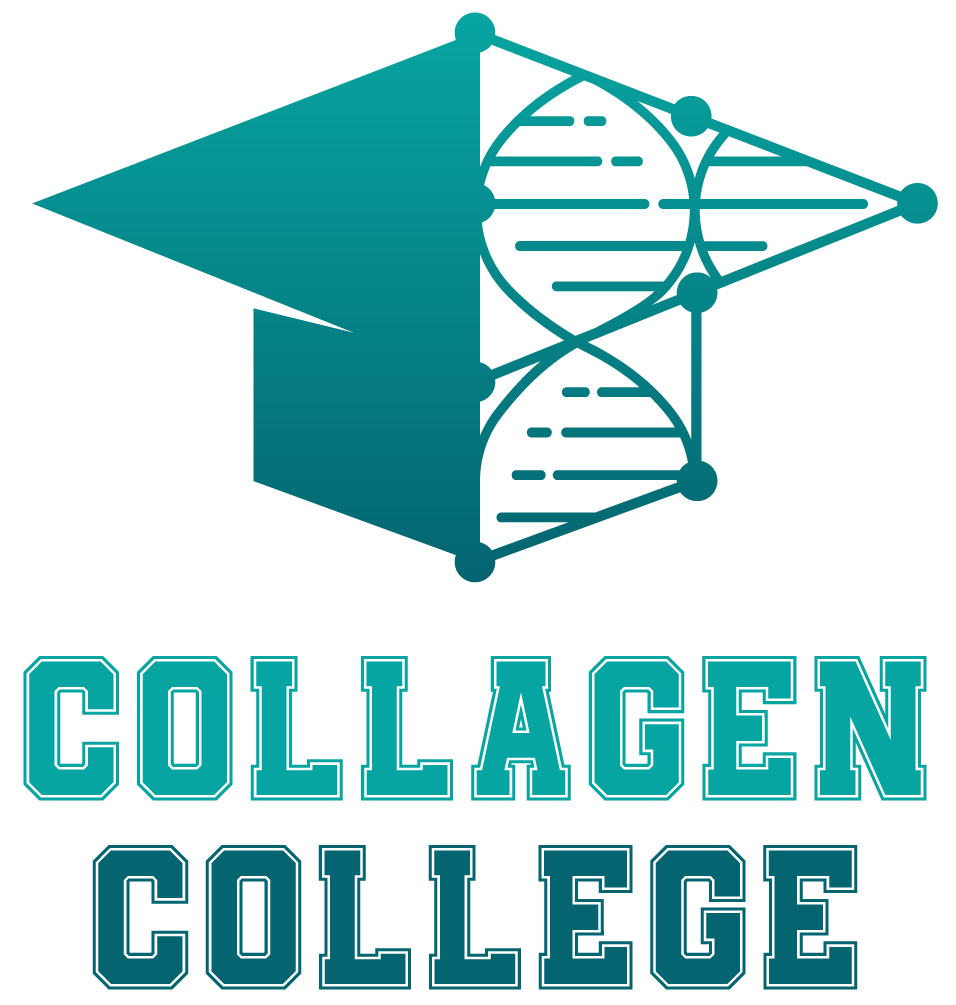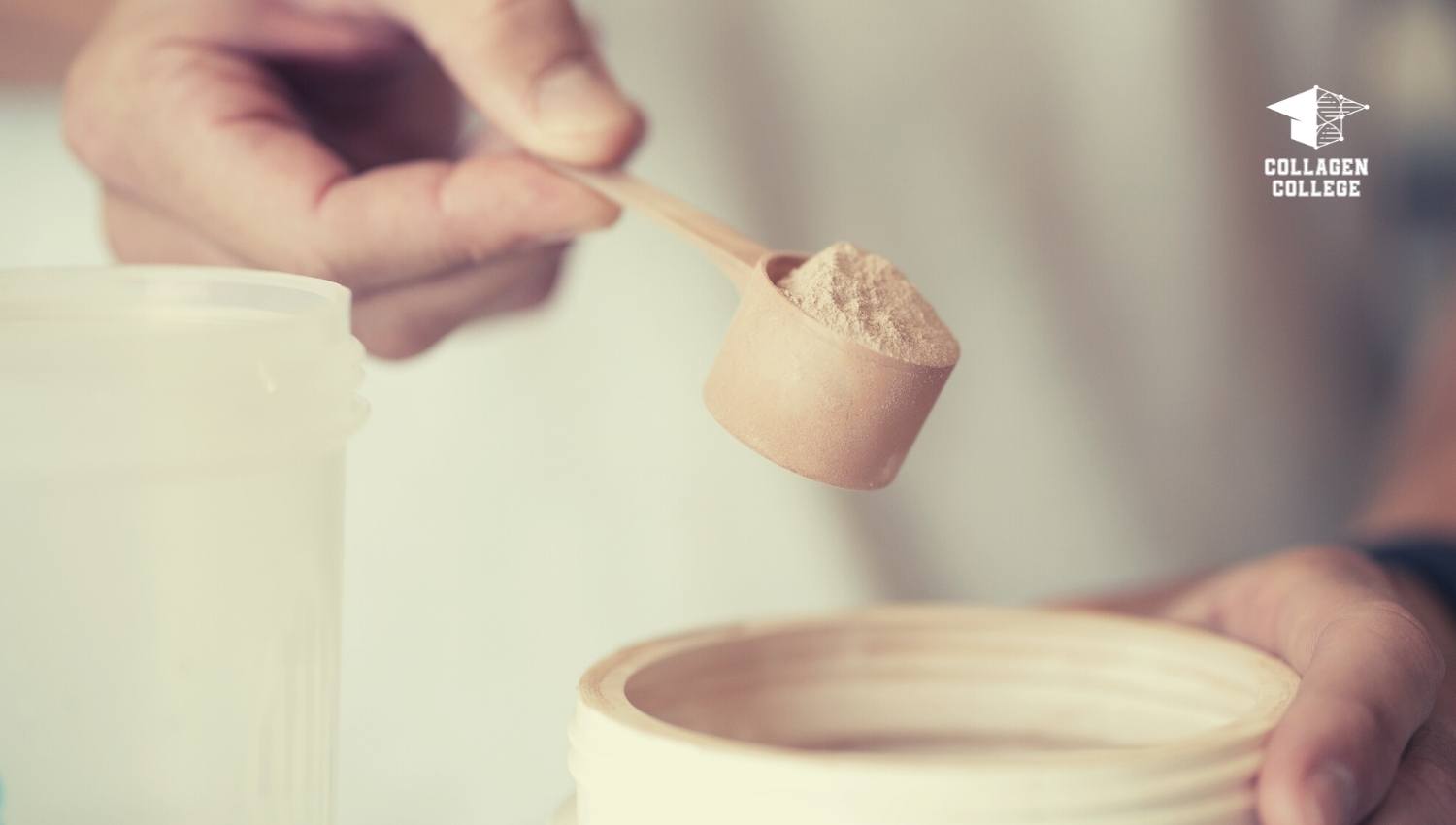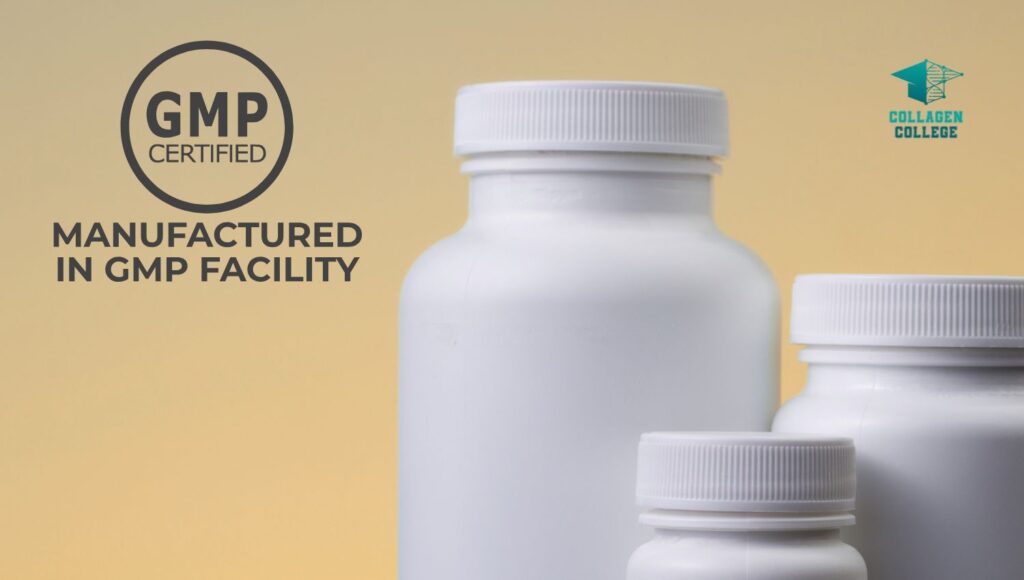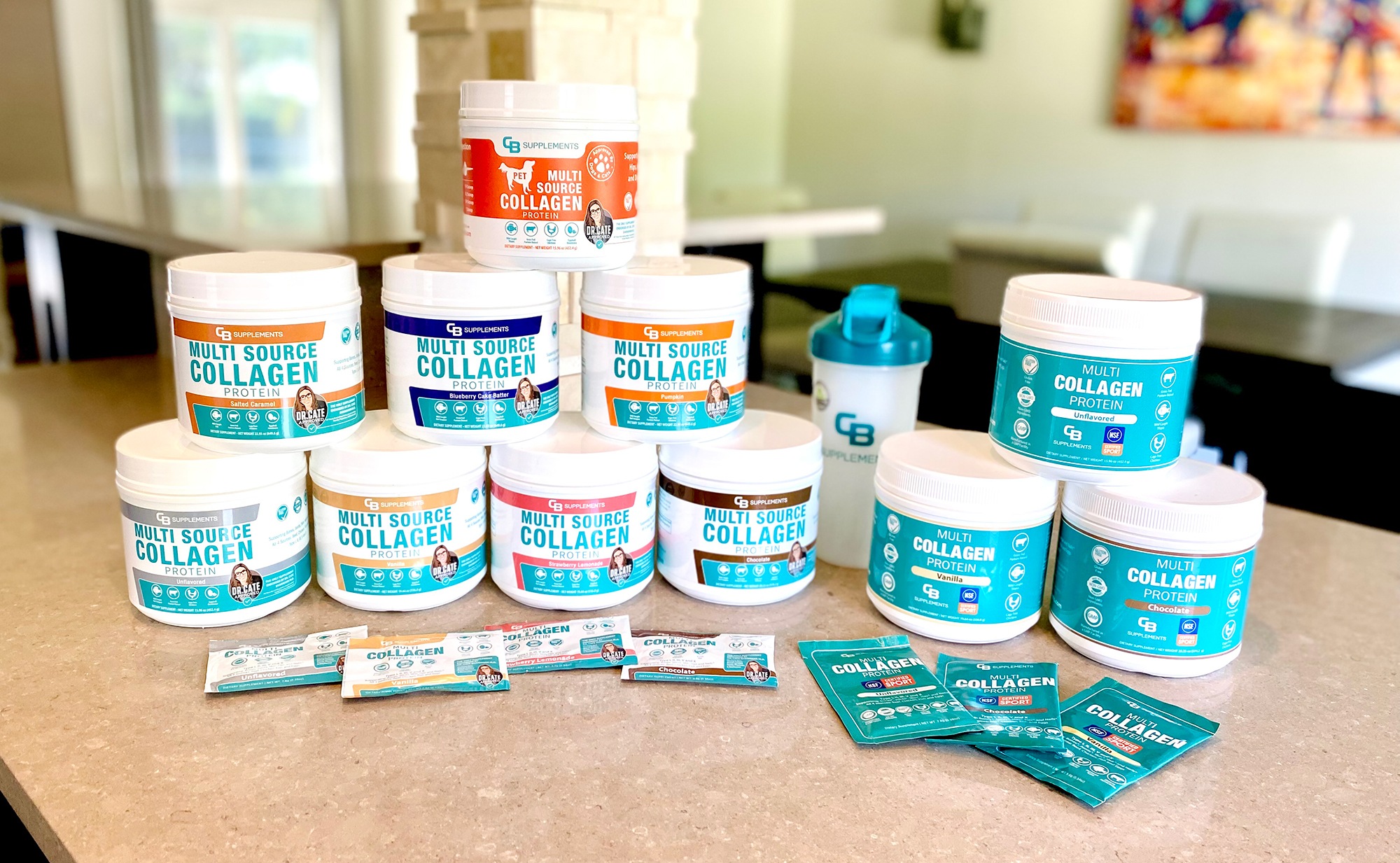Collagen has recently been a hot topic (pun intended), specifically in the health and beauty industries, and for good reason. Collagen as a business sector is booming (and growing). The global collagen market size is projected to reach USD 6.63 billion by 2025.
With any industry experiencing major growth, there’s bound to be information not understood clearly or people/sources trying to make an extra buck (fake news anyone?)
The debate around collagen and heat
There are a few sources that claim collagen’s benefits are negated in hot 185° F coffee, such as this one:
When added to hot coffee, for example – collagen’s molecular structure melts, diminishing or even negating the desired health benefits.
— Source
“Molecular structure melts?”
What does that even mean?

Try sticking a bone in your morning coffee (or a cup of boiled water) and see if it melts. Bet you a dollar it won’t.
Seriously, though, whoever wrote that heating collagen negates its health benefits seems not to realize that collagen needs to be broken down quite a bit in order to be digestible. The fancy term for breaking down collagen into digestible bits is hydrolysis, and that’s why CB Supplements contains hydrolyzed collagen not pieces of skin and chunks of bone.
The truth is boiling collagen to make it digestible does break down the collagen molecules. And that is absolutely necessary for our digestive enzymes to break it down further so our body can absorb the nutrients.
— Dr. Cate, M.D.
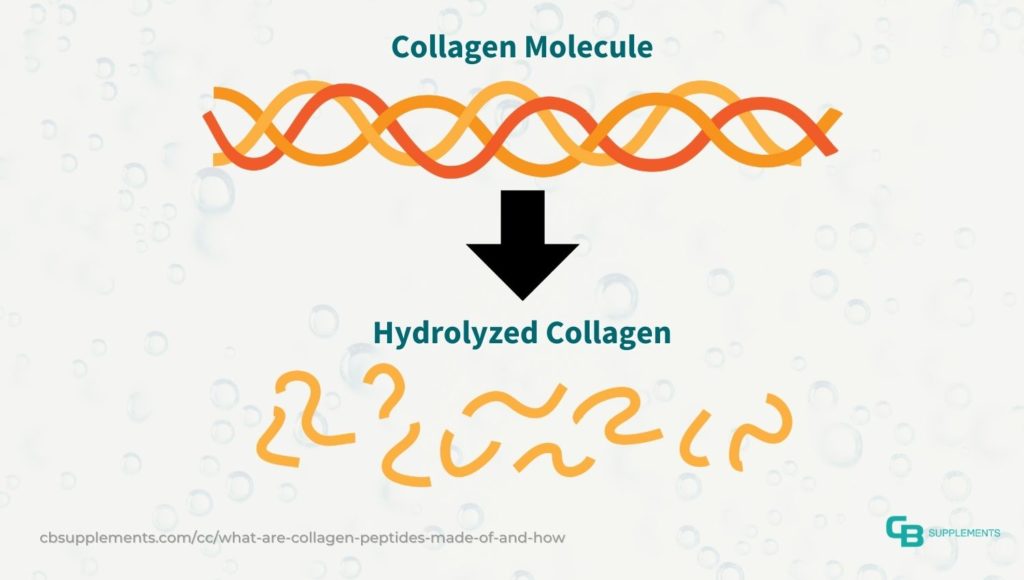
Since we sell multi collagen peptides, are we biased? Maybe, but this debate is just about understanding science and chemistry. We encourage you to continue the research around this debate, we think you’ll agree with us.
What Temperature does collagen break down?
Speaking of science, let’s continue that. There are two parts to this conversation, we’ll address part one first:
- Break down. The temperature where collagen simply breaks down — so it can be digested.
- Destroyed. The temperature where collagen is destroyed — and benefits negated.
If collagen couldn’t “break down”, there’d be no such thing as bone broth or CB Supplements.
Boiling water is hot. Hot water molecules are energized water molecules, kinetically energized. Boiling bones in water (where it all begins in the manufacturing process) enables high-kinetic-energy water molecules to start to separate the long strands of collagen that compose bone and skin (etc.) apart, and then to further break long strands into short strands. These short strands are now digestible. Your body’s digestive enzymes break down these shorter strands into the bioactive and amino acids that represent the real reason bone broth and collagen supplements are beneficial to your health.
At what temperature does collagen’s nutritional value become damaged?
This specific number is probably why you’re here. And we have the answer.
We love collagen and it’s incredibly powerful, but it’s not some space-like supplement that defies the laws of chemistry & physics.
The temperature that really matters in this discussion is the point at which collagen’s bioactive amino acids and peptides are destroyed. That does not occur until bone ignites and burns around 1400-1800 degrees, says the Cremation Resource.
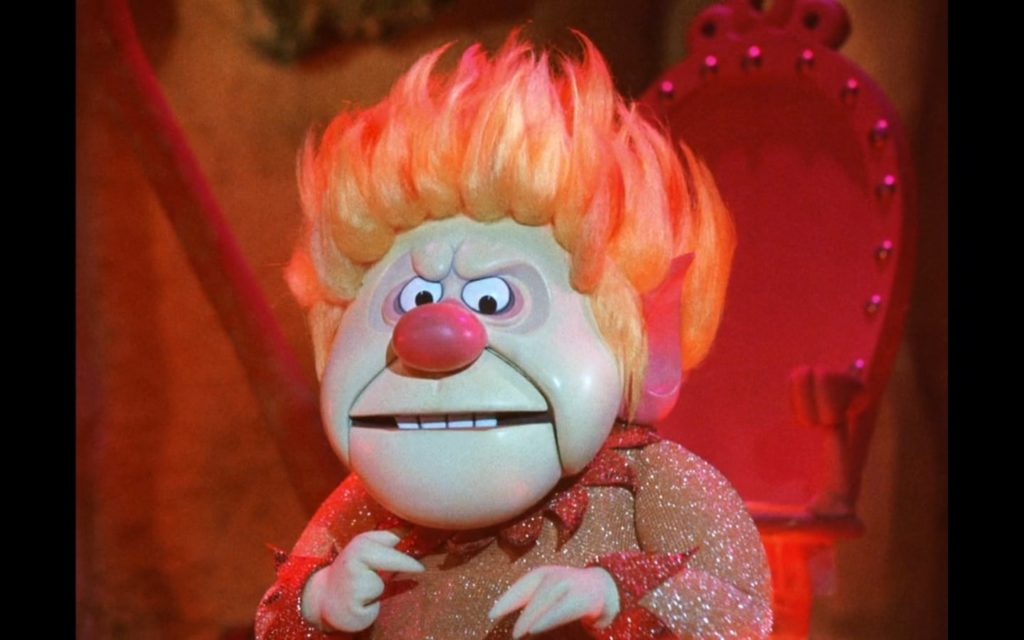
What about this 572° F number floating around?
If you Google enough, you’ll often find references to 572° F, such as this NCBI study. What does that number mean? Is it relevant and important? Let’s address it.
572° F is more than likely an irrelevant number to this entire conversation around collagen and heat. All this number means is that without water, collagen must be heated to 572 degrees Fahrenheit before it starts to break down into a digestible form.
Again, this only matters if you have a pile of animal bones and looking to run some scientific experiment without a liquid to aid in the process. We’re guessing that’s not you.
Denaturation & Collagen 101

So if collagen doesn’t lose its bioactive effect until it ignites around 1400-1800° F degrees, why are we even talking about this?
For one, there is a lot of bad information out there on the Internet. Second, there are a lot of scary words too. One of those scary words that evokes fear, sweaty palms, and headaches is the term denaturation.
The word denaturing is scary because, if you don’t know what it really means, you might think it refers to removing nature from it and turning it into an unnatural substance. But, that’s not what denaturing means.
Some claim that heating collagen protein causes denaturation that changes the effectiveness and negates any benefits you receive from taking that collagen. The fact is, anyone claiming that denaturation is a problem has no concept of the meaning of the word ‘denature’ or of the digestive process.
Dr. Cate Shanahan explains it best:
“Denaturing is one step of many in the digestive process, the one that ‘loosens’ the long balled up, wound up strands of protein molecules so that your digestive enzymes can gain access and do their work. If no denaturation occurred, you’d be unable to absorb the special nutrients in collagen that your body needs. Much of it would just pass through your body undigested. In order for your body to absorb all proteins, be it collagen or egg white or muscle meat, your body needs to break the protein molecules down into tiny pieces, called peptides and amino acids.”
Thanks, Doc.
Denaturation & Collagen Metaphor

Why does collagen need to be broken down to be digested? Because it’s a really big long molecule and it’s balled together in a way that makes it hard for our digestive enzymes to get in there and break it down.
Picture a ball of yarn. It’s one long string neatly rolled into a sphere. Digestive enzymes can only attack the ball from the outside in, just a few external strands. Now imagine someone unrolling that ball of yarn, then cutting one string into 1,000 pieces. You are now looking at yarn in a different form, one that is already partly ‘degraded’ and it enables our digestive enzymes to get in there and finish the job. Boiling collagen in water and it is like unraveling that ball of string and snipping it into short pieces.
Stirring hydrolyzed collagen into hot coffee for a few minutes does not break down the molecules into peptides or amino acids.
Heating collagen during stock making (or the making of supplements) will break down collagen just enough to enable our enzymes to further break it down into the smaller, bioactive components we need.
Here’s what your enzymatic hydrolysis does to those short snippets of “string” in our ball of yarn analogy.
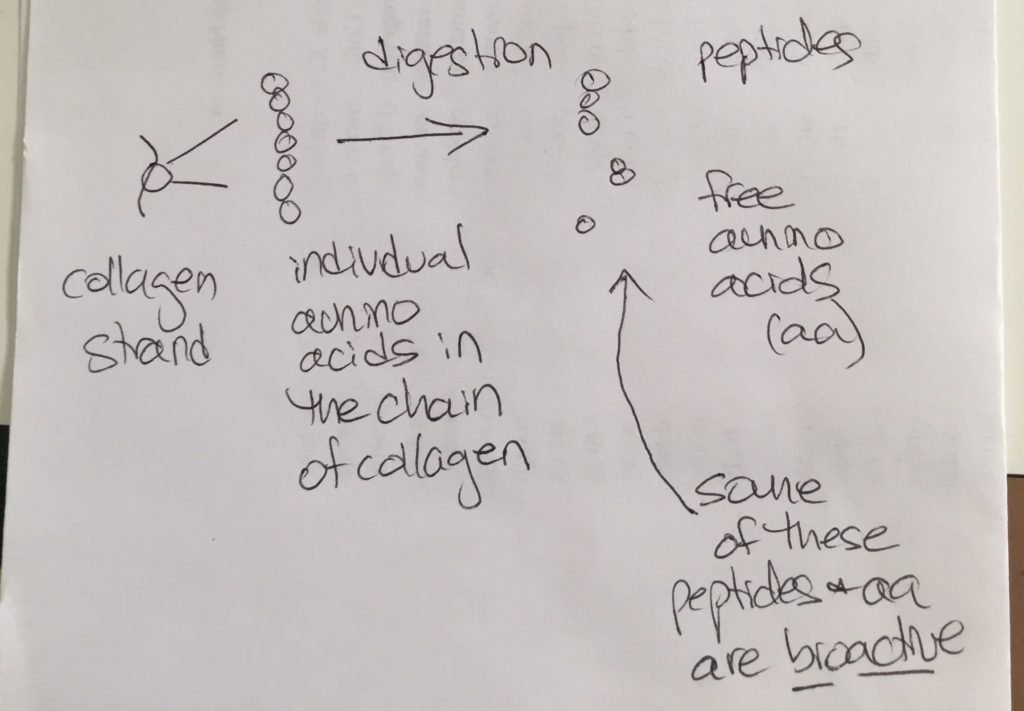
Now that we have an understanding of the science of hydrolysis, how collagen protein breaks down to collagen peptides, and what temperatures are actually important in this conversation — let’s get practical.
Does heat destroy collagen powder?
At CB Supplements, we’re all about collagen powder, so we should certainly address this question. If you’ve been reading along, you know the answer. If you’ve bounced straight down to this section, we’ll be quick.
Heat does not destroy collagen powder unless you heat your drink or food to a blazing 1400° F, which would basically melt your esophagus. The bioactive peptides remain intact at high temperatures used in hot drinks and food. This makes collagen powder a durable and versatile protein powder for cooking!
Does collagen break down in hot coffee?
Most hot drinks, including coffee — a popular way to take collagen powder — will range between 160 to 185 degrees Fahrenheit. Collagen powder is durable and retains its bioactive peptides up to a scorching 1400° F. So, sip away on your delicious coffee and collagen in full confidence knowing the collagen protein is safe and unaffected.
Now, go check out our collagen & coffee recipe or collagen latte recipes.
Can you microwave collagen?
For you folks on the run (which, is like all of us right?)
A microwave oven is a tool, and like any tool, using it correctly depends on understanding it. Microwaves are great for heating up things like coffee with collagen and lousy for heating up popcorn with vegetable oil “butter”.
The short answer is, yes, you can microwave collagen because microwaves generate less heat, but more radiation. Many foods, such as collagen, are made of 2,450 MHz radiation damage-resistant molecules.
3 years of benefits!
"Been using this multi collagen peptides for 3 years and continue to experience positive benefits!"
- Michael (Winter Park, FL)
✔
Purity Tested
✔
M.D. Approved
✔
Delicious Flavors
Here’s the long answer.
Heat, radiation, and oxygen can all destroy nutrition, with differing kinds of damage resulting from each. Microwave ovens generate less heat than a typical oven, but more radiation. There are good and bad uses for a microwave. One of the good uses is heating foods that are made mostly of highly mobile, 2,450 MHz radiation damage-resistant molecules, like water, which capture more than 99% of the incoming radiation energy during microwaving.
— Dr. Cate, M.D.
If you’re still worried about microwaving collagen peptides powder, just stir it in after you’ve microwaved the food or liquid!
Can you cook and bake with collagen?
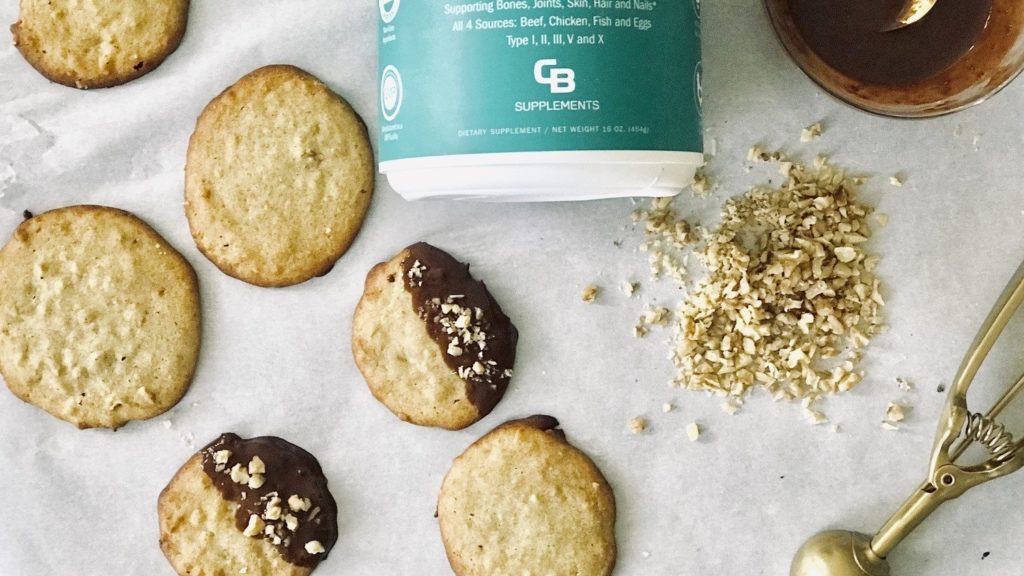
Let me answer with a question.
Do you cook (aka incinerate) your food at blistering 1400-1800° F degrees? Unless you’re Mr. Heat Meiser, probably not!
Cooking and baking with collagen, in particular collagen peptides powder, is safe and effective. The collagen protein molecules can withstand temperatures up to 1400°, which is significantly above and beyond any temperature you’d cook with. For example, baked goods such as cookies, reach temperatures around 425° F. This makes hot food and liquids an excellent conduit for collagen protein, rather than other proteins (e.g. whey) because its bioactive peptides and nutritional value stay intact.
Here are some average cooking temperatures for some common foods (source: Foodsafety.gov):
- Ground meat & meat mixtures = 160° F (see Collagen Meatballs recipe)
- Turkey, chicken = 165° F (see Mock-Honey Garlic Collagen Chicken recipe)
- All Poultry (breasts, whole bird, legs, thighs, wings, ground poultry, giblets, and stuffing) = 165° F
- Egg dishes = 160° F (see Collagen Quiche recipe)
- Leftovers and casseroles = 165° F
- Fish with fins = 145° F
- Cookies = 400° F (see Collagen Oatmeal Chocolate Chip Cookies recipe)
- Muffins = 375° F
- Pancakes = 375° F (see Collagen Pancakes recipe)
You can also add a few scoops of collagen to your:
- soups (see collagen soup recipes)
- pasta
- rice
Go ahead, heat that collagen, and enjoy
Have we helped you breathe a sigh of relief? We hope so.
If not, and you have more questions, please drop us a comment below. This topic of heat and collagen is dicey and there’s questionable (to put it nicely) information floating around.
So go ahead. Add that scoop of collagen to your coffee. Cook it. Bake it. Trust that you’re gaining all the wonderful benefits of this superfood even after it’s heated!
